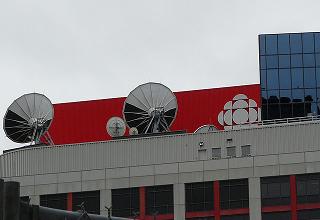Last weekend, Peter Mansbridge opened the lid on Kony 2012, the viral video about child soldiers in Uganda, and quickly closed it. CBC news’ voice of authority asked his guest, another iconic Canadian, Stephen Lewis, authoritative voice of our humanity you might say: “What’s the take-away on this?” As if: Enough chit-chat, Stephen. Let’s nail down its significance and move on.
Mansbridge lives in a world of take-aways: definitive judgments that acknowledged authorities like he and Stephen Lewis get to make, leaving others to humbly accept or grind their teeth while spitting some lonely demurs.
But that’s not the world of Kony 2012. It went out on the Internet and became an instant global banner. Just as fast, it came under attack: questions on its style, producers, agenda — despite the fact it claimed its cause was one of the few simple moral choices in the world. Its defenders responded as swiftly. This isn’t a world of take-aways, it’s a world of pass-arounds, and endless cycling.
Now imagine if Kony 2012 had been a show on 60 Minutes or CBC’s the 5th estate. It would have been near impregnable. Its flaws — narcissism, smugness, oversimplification — would’ve stayed as invisible as the kids it says it’s about. Some academic or activist might have critiqued it in a book published long after. So my question is: What is more public: the CBC or the Internet?
What’s always been perplexing about the CBC is how unpublic it basically is: the way it mimics the private, for-profit nets in much of what it does. Its stable of right-wing ideologues, for instance — Rex Murphy, Kevin O’Leary, Don Cherry — with zero counterbalancing figures. Or its mimicry of U.S.-style “action news” based on the puny vision of American consultant Frank Magid: happy news, news you can use, if it bleeds it leads. This week one of Mansbridge’s broadcasts headlined: burger scare, outrage over Graham James sentence, problems with your brakes and ski resort controversy.
I think what always deceived us was the assumption that “public” equals ownership. If the Canadian people own the CBC, it should have a public nature, n’est-ce pas? But that’s a legalism which becomes doubtful when an alternative that looks far more like public broadcasting heaves into view — on the Internet.
Maybe we were mesmerized by the wrong issue: ownership. That isn’t the problem. It’s the medium, stupid. It doesn’t matter who owns it. A unidirectional, one-to-many medium like network TV delivers irresistible clout to those who control it and deliver its programming to the nation. Being human, the power will go to their heads and they will routinely identify with other powerful, usually rich individuals and groups. Maybe what we need is a distinction between public broadcasting, which is a mere matter of who formally owns a network, and public media. Meaning what?
Media forms that are by their nature open and accessible to the public — not just as audiences but co-producers and participants. It’s no one’s fault if that wasn’t available till recently. It isn’t a matter of suppressing any material but of opening it all to a public capable of learning, even from its stupider reactions. (One porn star went to the beach to shoot a video defending Kony 2012).
I want to have Kony out there, and know what impels those behind it. The same goes for Cherry or Murphy. But no one ought to monopolize and there should be no take-away deciders, there’s only a process from which insight and consensus may emerge. That sounds like public media/broadcasting to me.
Some of this may sound scary. Don’t we need to know the take-aways? It’s like the move online of Encyclopaedia Britannica last week. The scare isn’t that it’s online but that it will never again wield the authority it had, and no one else will either. But that was an illusion anyway. There are no definitive founts. Should that be a source of fear and anxiety? Science writer James Gleick says it’s a choice: “We can be overwhelmed or we can be emboldened.”
And what ownership form would fit this kind of public media? Perhaps none at all. Whoops. Then we might be peering into the abyss, or the future, or both.
This article was first published in the Toronto Star.



